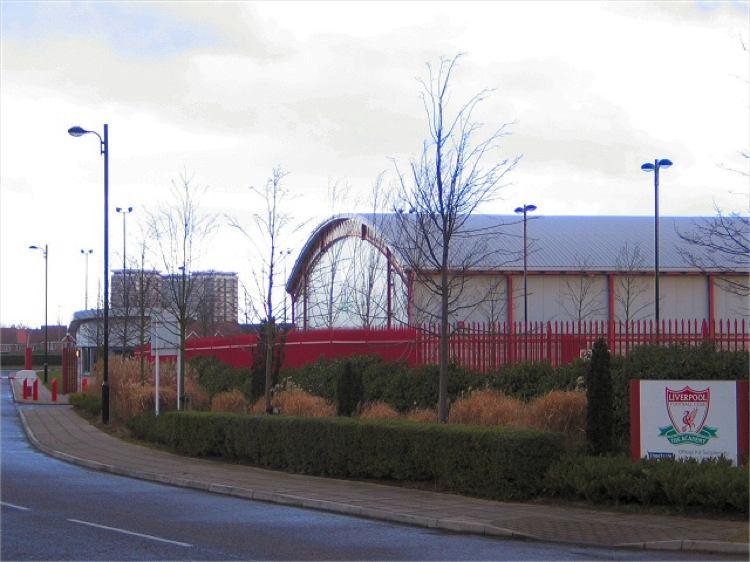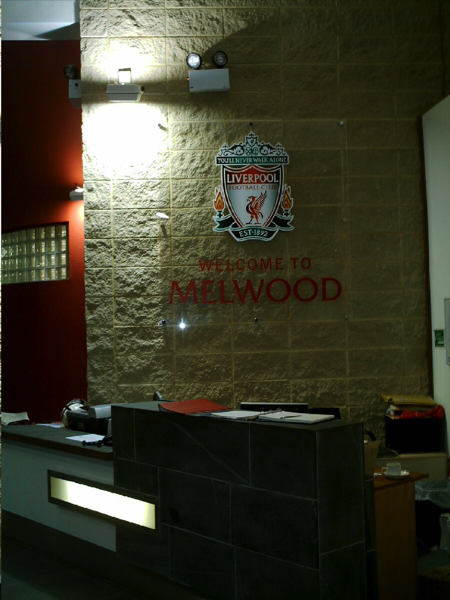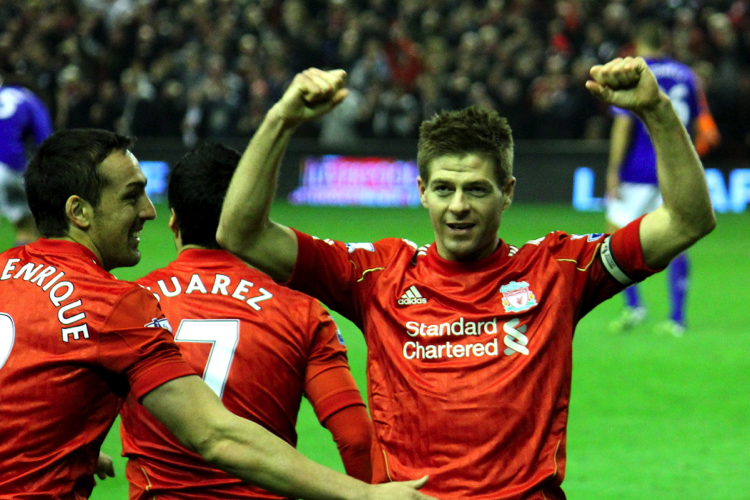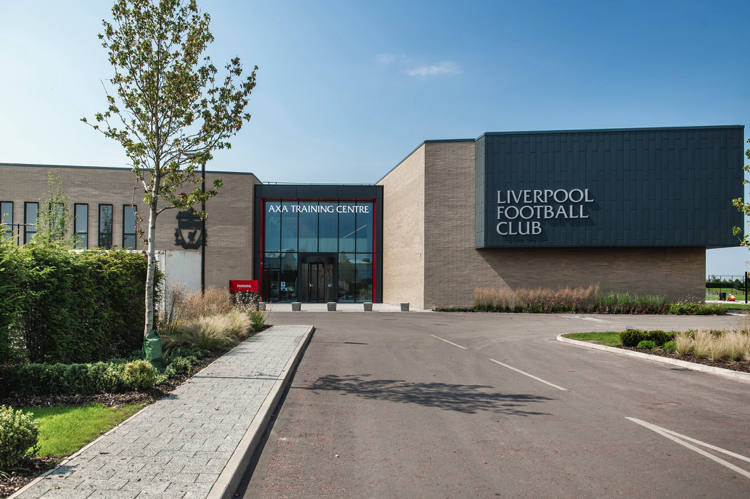Liverpool are one of the most recognised football clubs on the planet. The Reds are the most successful English side in Europe, and their fanbase all over the world is huge. The biggest teams need the best training facilities, and Liverpool certainly have one of the best in the business. After 60 years at the famous Melwood training ground, Liverpool moved into a new state-of-the-art venue in Kirby in 2020.
Kirby Training Centre

In October 2020, Liverpool moved into The Academy, Kirby. The venue, also known as the AXA Training Centre, is home to Liverpool’s first team, reserves, and academy. Construction started in 2017 and was completed three years later. Liverpool’s first team moved into the facility just a month after its completion. They were reigning Premier League champions at the time after winning the title at the end of the unique 2019-20 season and so there was a real feelgood factor about the move.
Jürgen Klopp played a huge role in getting the training ground moved finalised. While at Melwood, the first team trained five-miles away from the youth team at Kirby, and the German boss wanted all his players training under one roof. Of course, the construction did not come cheap. £50m was spent on the new facilities, though the move was seen as a crucial investment by the club. Liverpool now have the opportunity to train to the highest standards possible, rivalling the world’s biggest clubs.
The Kirby Facilities
The facilities at The Academy, Kirby are second to none. The venue is split in two, with the first team in one half and the under-23 team in the other. Only a single corridor separates the two halves, which was a design requested by Klopp.
There are three GrassMaster pitches and an outdoor sports area with tennis courts and a beach volleyball court. The inside building has separate gyms for the first team and youngsters, rehabilitation and relaxation suits, and world-class dining areas. Press conferences and other media requirements are also done at the training facility.
Melwood: Liverpool’s Home for 60 Years

Melwood was located in West Derby, Liverpool and was the club’s training ground from the 1950s until the recent move. The first team, academy, youth teams and Liverpool Women’s first team all shared the training facilities at different times.
Liverpool moved to Melwood in the 50s after previously using the Anfield pitch to train on. The venue deteriorated and the pitches were badly maintained by the time Bill Shankly arrived in 1959. Shankly kicked off the renovation of Melwood. His players would meet and change at Anfield before boarding a bus to the training ground.
More renovation work began in 2001. Under Gerard Houllier, the club started work on the Millennium Pavilion, which would upgrade the changing areas for players and add a synthetic pitch. A gym, swimming pools, saunas and rehabilitation rooms were also added. The final upgrade was done in the Brendan Rodgers era.
When the Reds left for Kirby in 2020, several legends of the club praised the old training ground. The likes of Alisson, Lucas Leiva and Jamie Carragher all had positive things to say about Melwood. In 2023, Liverpool repurchased the venue and it became the home of Liverpool Women.
Why Is a Top Training Ground So Important?
The world’s best clubs deserve the best training facilities. Having moved to Kirby, the Merseyside giants are now competing with the biggest when it comes to training facilities. The Reds won their first Premier League title in 2020 and are looking to add many more domestic and European trophies to their glittering cabinet in the upcoming years.
The focus for supporters is on matchday. However, the teams’ preparation for a game starts on Monday morning. The players train all week to get themselves in the best possible shape for the next game. Therefore, having the best facilities on hand is crucial for the big clubs.
In pre-match interviews, you often hear managers and players mention training, and getting it right mentally and physically during the week is just as important as the match itself. Liverpool are involved in high-profile games every few days, so training is a vital part of the regime. That includes fitness work, technical training, tactical study and practice, and rehab from injury, so a wide range of facilities are needed.
Liverpool’s Best Graduates

Liverpool have produced a number of world-class players from their academy, with all of them learning their trade at Melwood.
Steven Gerrard
Steven Gerrard, arguably one of the best midfielders of all time, joined the Reds at just eight years old. He came from the ranks and turned himself into a club legend.
Jamie Carragher
Jamie Carragher spent 17 years as a Liverpool player, helping the club to Champions League glory alongside Gerrard in 2005. Carragher is second on the all-time appearance list, racking up over 700 games for the Reds.
Ian Callaghan
Ian Callaghan, who was born in Toxteth, is top of Liverpool’s all-time appearance list. He spent 19 years at Anfield, featuring 857 times for the Reds. 640 of those games were in the league.
Phil Thompson
Another youth product, Phil Thompson, broke into Liverpool’s first team in 1971 and stayed at Anfield until moving to Sheffield Wednesday in 1984. Thompson was also caretaker manager from 2001 to 2002, winning Premier League Manager of the Month on two occasions.
Trent Alexander-Arnold
In recent times, Trent Alexander-Arnold has come through Liverpool’s youth system and turned himself into a top professional player. Alexander-Arnold was part of the Premier League-winning team and has featured regularly for England since breaking onto the scene.
Other Notable Players
Several other players were made in Liverpool’s academy and went on to have successful careers at Anfield. Tommy Smith was a real hero during his spell at the club in the 60s and 70s and is eighth on the all-time appearance list. Steve McManaman was a huge hit in the 90s, and the likes of Ronnie Moran and Ronnie Whelan are among Liverpool’s greatest graduates.

